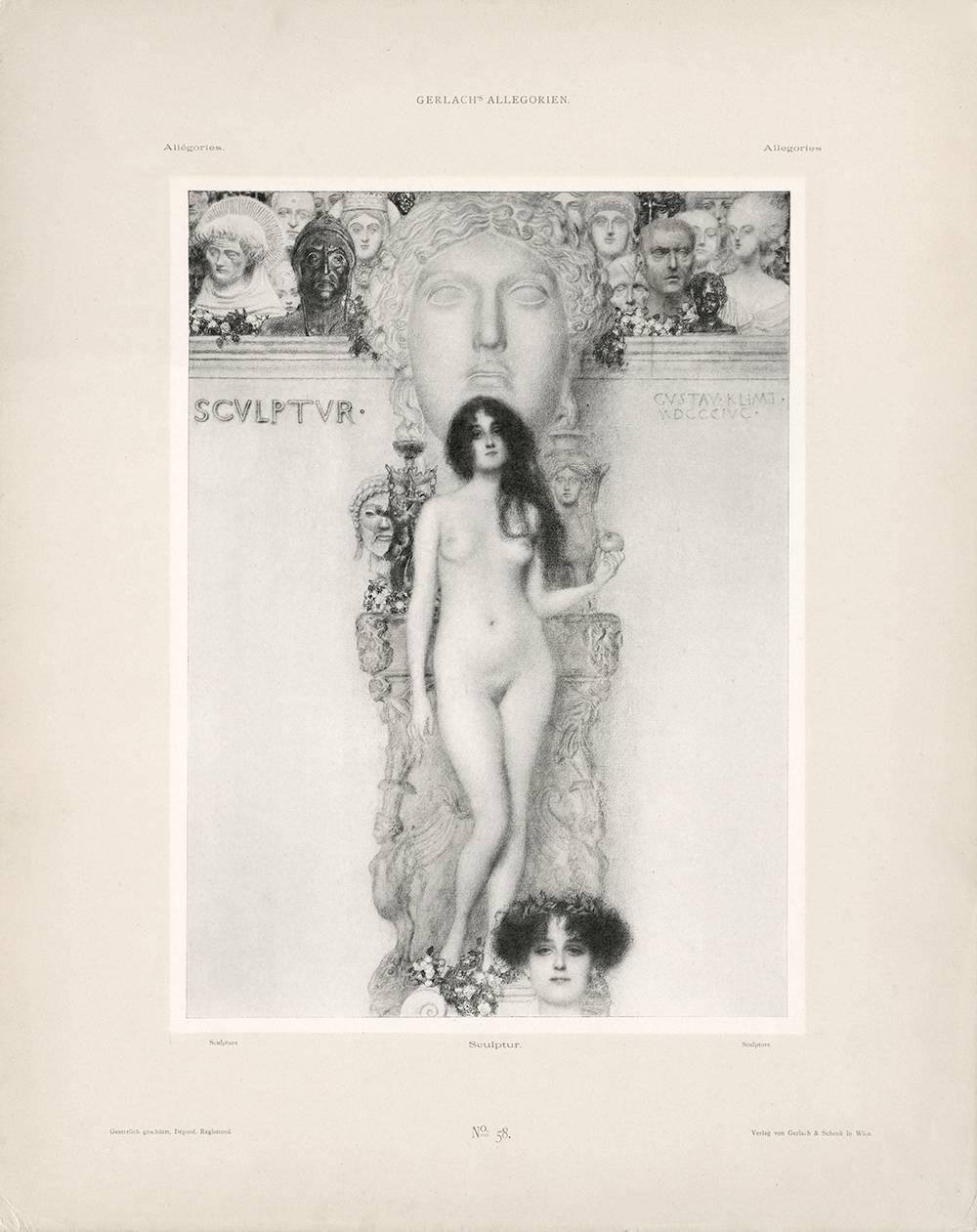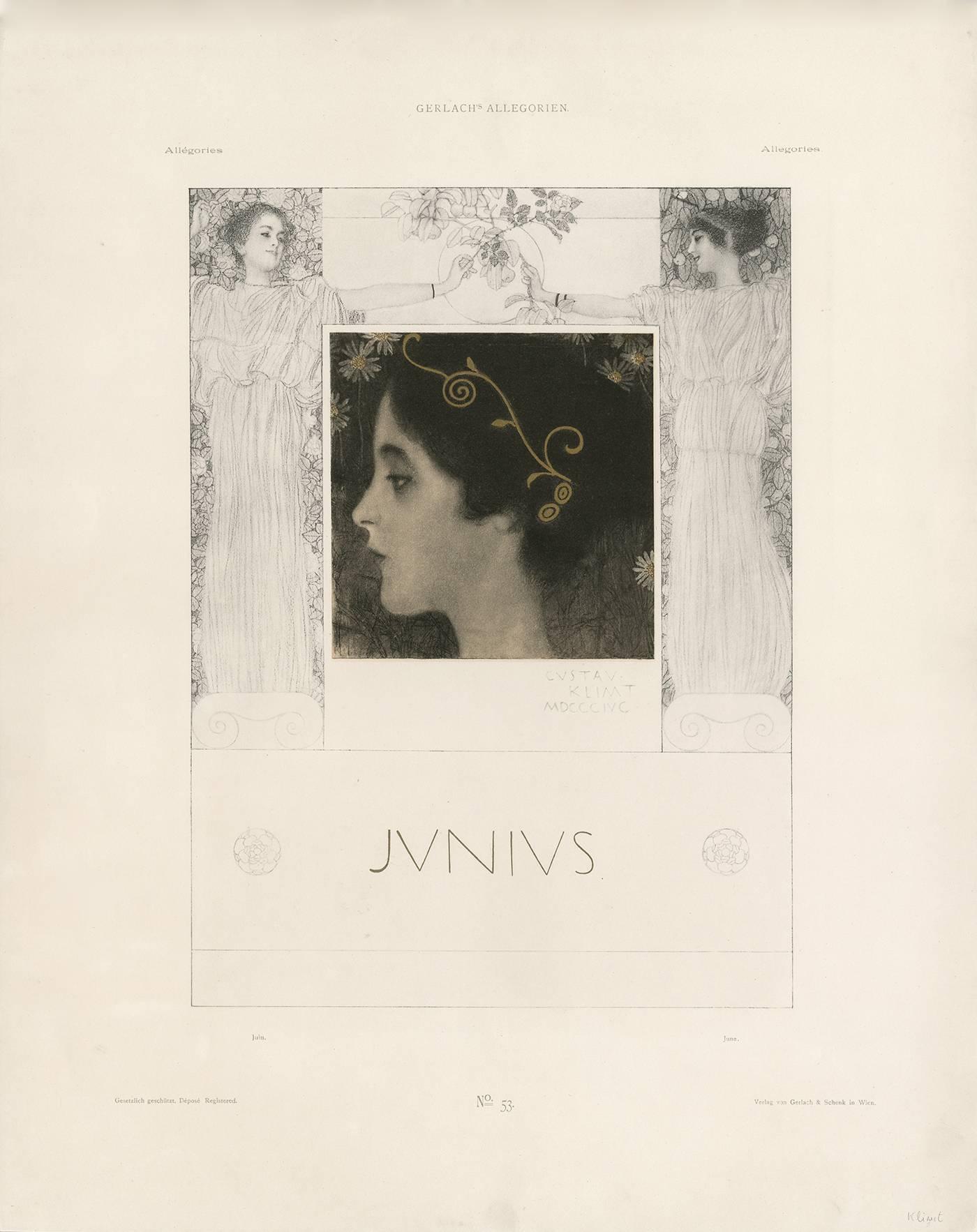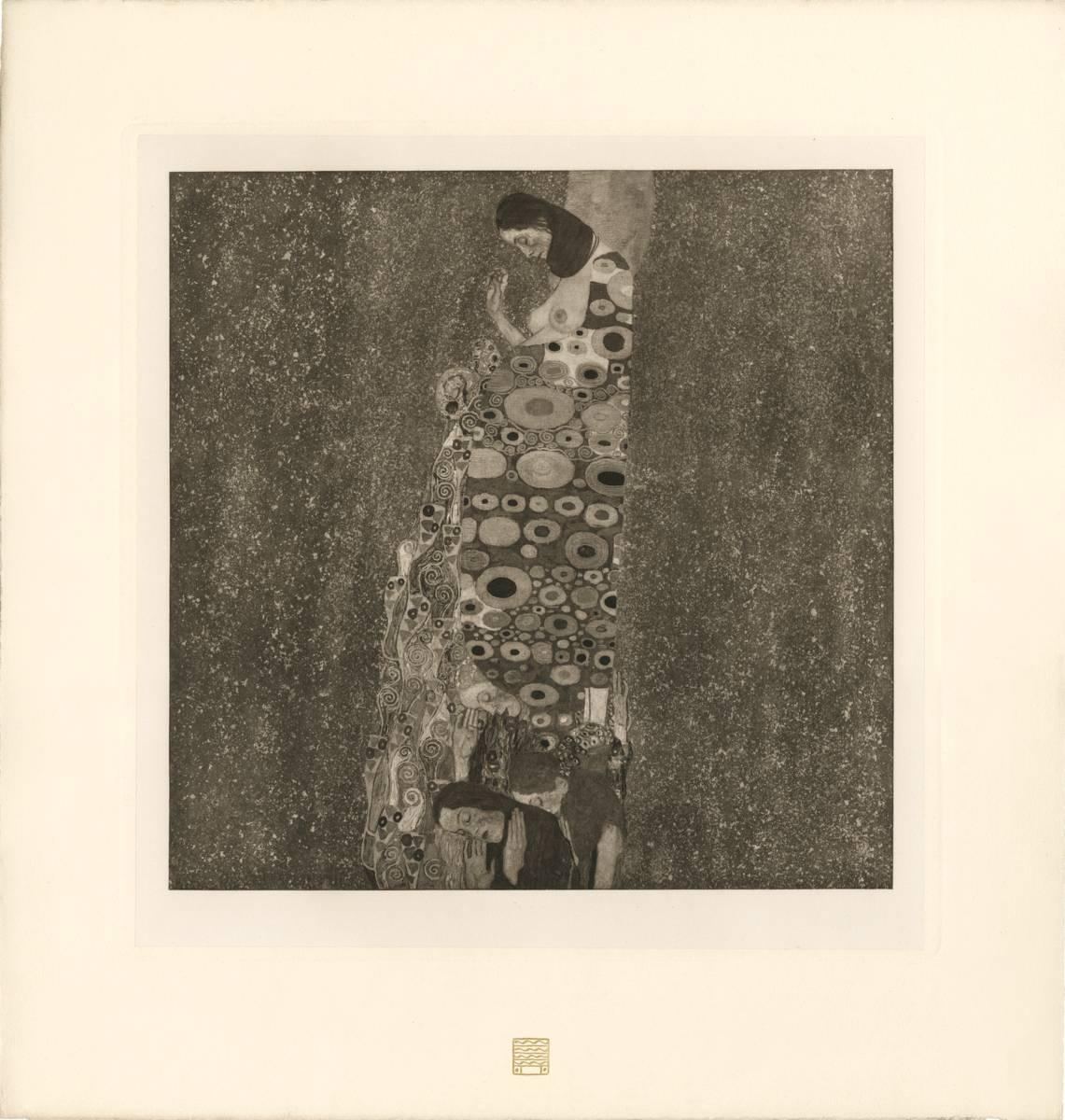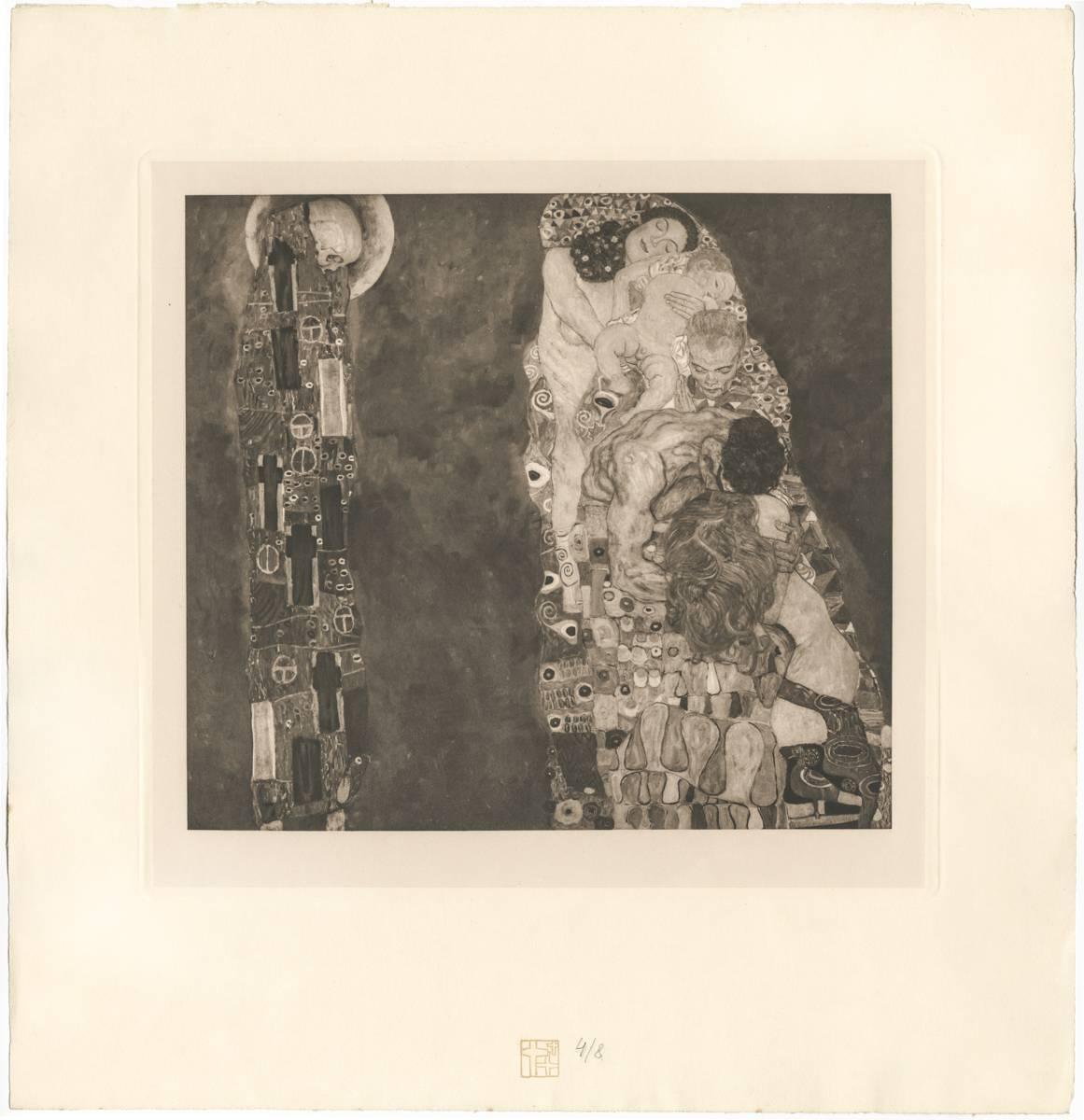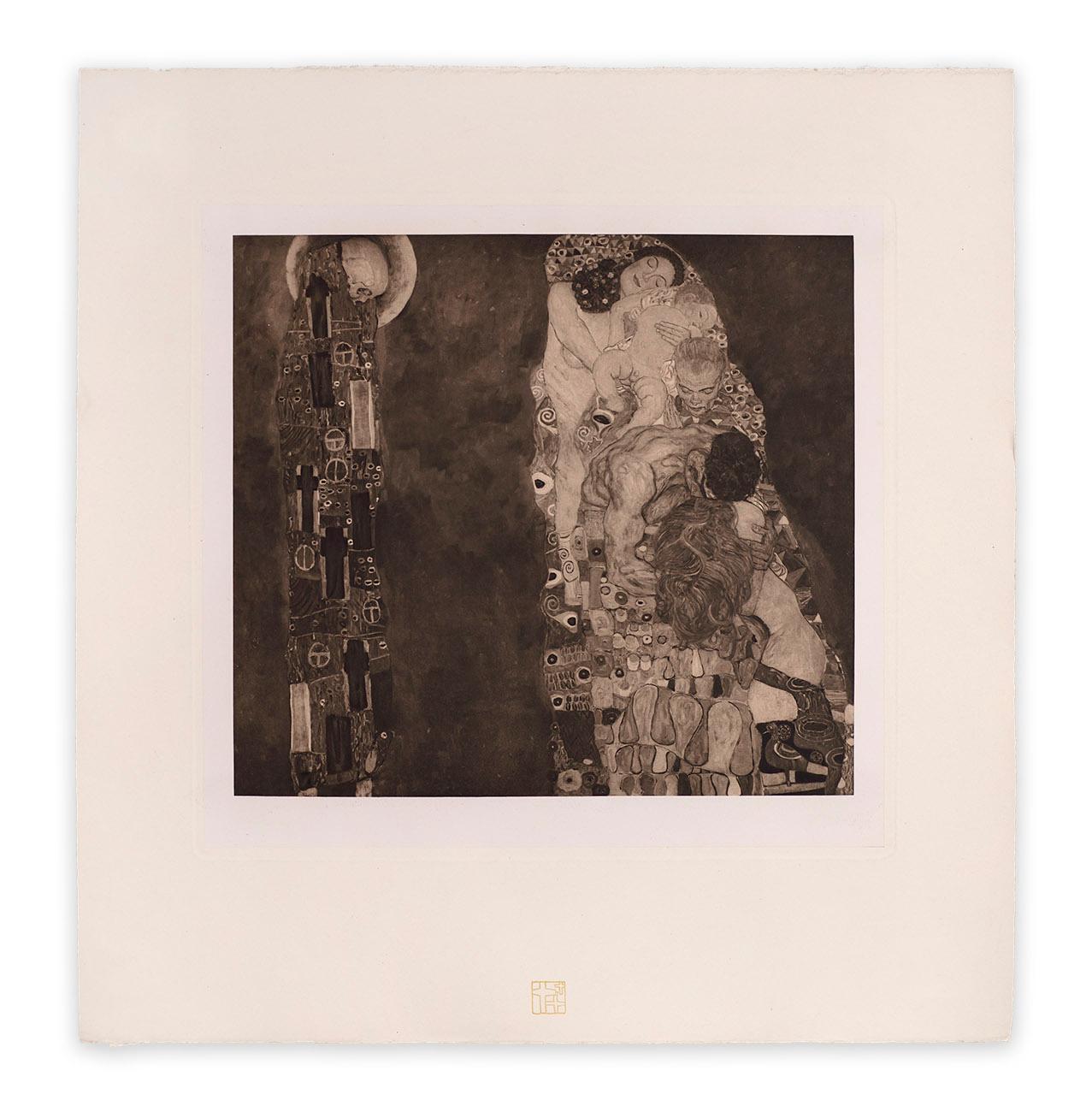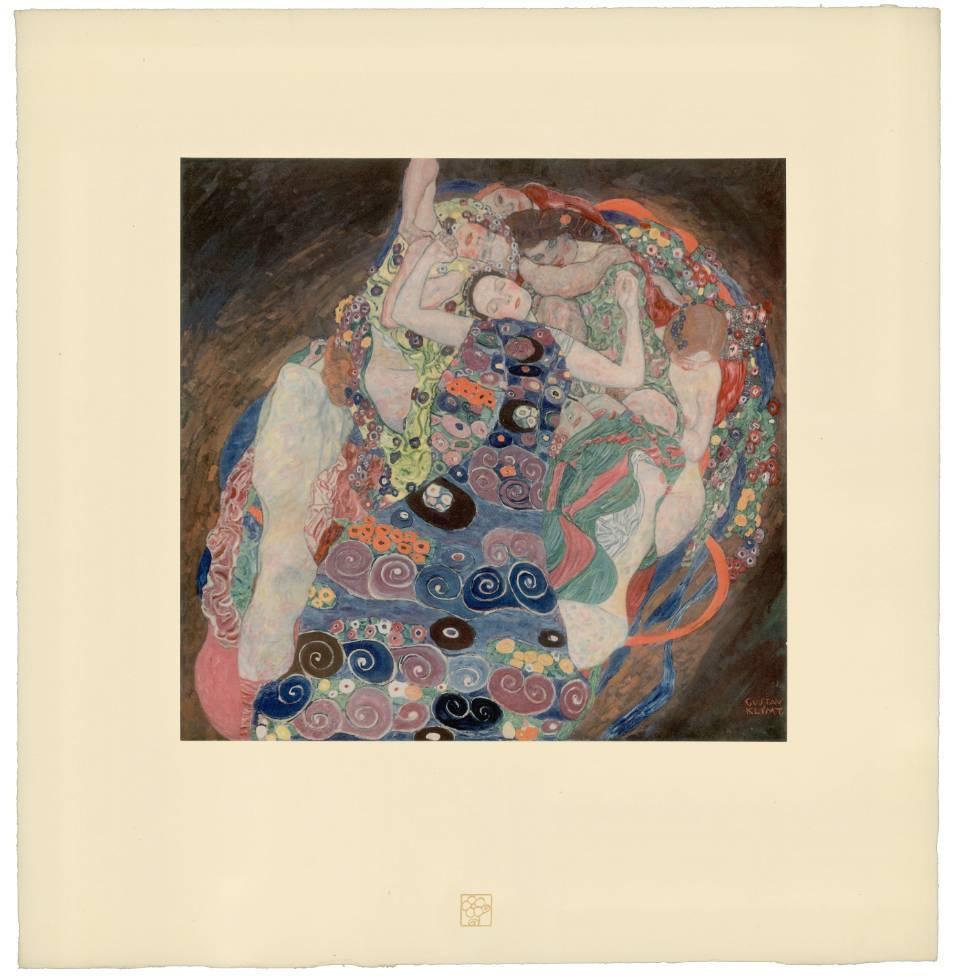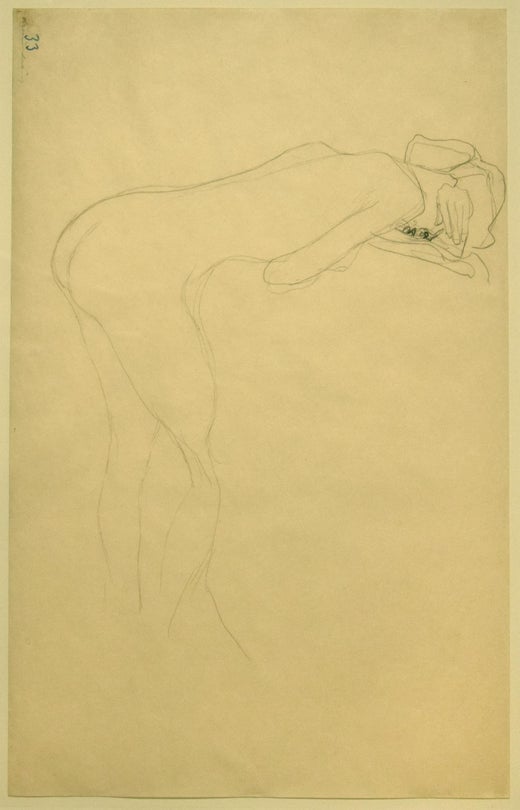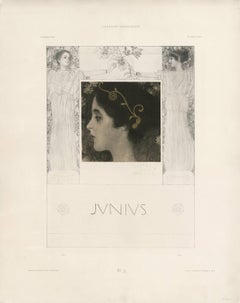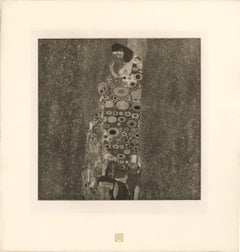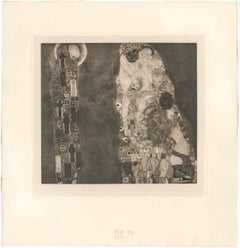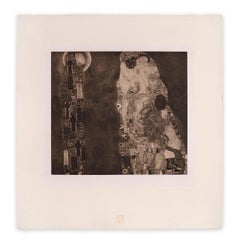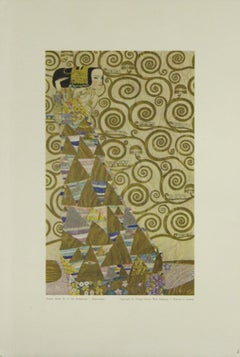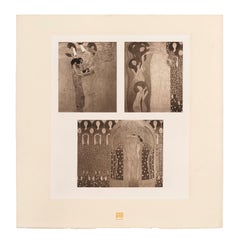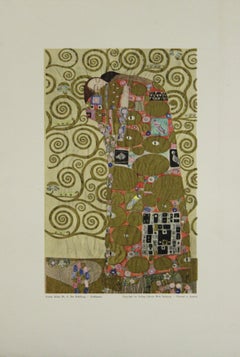Items Similar to Gerlach's Allegorien, plate #46: "Love" Lithograph, Gustav Klimt.
Want more images or videos?
Request additional images or videos from the seller
1 of 7
Gustav KlimtGerlach's Allegorien, plate #46: "Love" Lithograph, Gustav Klimt.1897
1897
$18,500
£14,035.22
€16,092.20
CA$26,354.35
A$28,600.96
CHF 15,048.60
MX$347,502.41
NOK 188,405.61
SEK 177,401.02
DKK 120,153.23
About the Item
Klimt’s association with Martin Gerlach dates back to the early 1880s when Gerlach and Schenk published their first edition of Allegorien und Embleme. By the mid-1890s, they were planning updated and more modern editions. The publication was printed in an unknown number of copies. Klimt submitted this 1895 oil on canvas for inclusion as an allegory of love. In his rather thorny depiction, Klimt explores the darker side of romance. The formal elements create a sensuality and dreamlike mood in which the pressing of flesh and gauzy fabric amid musky flora and fauna is as palpable as the misty atmosphere. Conversely, Klimt’s central scene flanked on either side by panels lends a sense of theatricality or an otherworldly quality. Presented in this context, the spotlit face of the female lover, tightly and rather aggressively embraced by her male counterpart who appears engulfed by dark foliage, takes on a macabre effect. The spectral nature of the scene is reinforced by the ghostlike cast of characters looming above. Eight heads ranging from an apparition of a child, an image of the female lover’s face, to progressively more disturbing and decomposed female subjects culminate with a skeleton. Klimt considers the temporality of love and employs a familiar symbol to depict ephemerality, the rose, whose beauty and scent are fleeting. Klimt also links the rose’s symbolic image to the ghostly heads; there are eight heads and eight roses. Klimt gives equal billing to the rose’s leaves, stems and thorns whose color dominates the central scene and which nearly overwhelms in a jumble of brambly foliage. Personified by the male, love in the form of the rose bush which has ensnared the young woman in the prime of her beauty and her life, is capable of inflicting pain and hurt.
ALLEGORIEN-NEUE FOLGE, 1897, published by Gerlach & Schenk Verlag fur Kunst und Gewerbe, Vienna, was a serial publication that began as Allegorien und Embleme in 1882. A sourcebook of inspiration made for and by young Viennese artists became something of a galvanizer of the modernist movement in Vienna with its new series issued in 1897. Its publisher, Martin Gerlach, plucked young artists and even art students who were exploring the newest techniques in drafting and graphic design to contribute to his publication. This was the beginning of a long-standing relationship. In the forward to the 1897 edition, Gerlach, expounds upon the new approach which consciously shifted away from historicism rooted in the conservative Academy. Instead, the artists were encouraged to explore new subjects and new ways to present them. More unconventional subjects such as: Wine, Love, Song, Music and Dance; Arts and Sciences; the Seasons and their corresponding activities, sports and amusements, breathed fresh, modern life into the allegorical genre. Specific topics that were explored ranged from Electricity and new concepts of Work and Time to Bicycle Sport and the Graphic Arts.
Essentially, the publication served as a portable forum for sharing and disseminating new ideas. Two contributors, a young Gustav Klimt and an even younger Koloman Moser, likely met through their involvement with Allegorien and found themselves to be like-minded artists. As a result, the two allied with other artists and architects in a dramatic and formal break with the established, conservative state-run arts (Kunstlerhausgenessenschaft) to found the Vienna Secession the very next year in 1898. Klimt became the Secession’s first President; while Moser, in 1903, expanded the group from a solely exhibition-based focus to include a workshop by co-founding the Wiener Werkstatte. Gerlach went on to publish some issues of the Secession’s journal called Ver Sacrum as well as postcards designed by its members.
The Viennese art critic, Joseph August, called Gerlach the “Fuhrer der Moderne” (Leader of Modernism). The new 1897 series, featuring its innovative and modern art plates, is an important art historical document as it played a significant role in helping shape the avant-garde art movement in Vienna which exploded onto the scene with the formation of the Vienna Secession in 1898. Individually, the plates are important works; they are noteworthy for their stylistically and thematically modern approach. These plates offer some of the
earliest examples of Viennese avant-garde and Secession artists’ published work.
- Creator:Gustav Klimt (1862 - 1918, Austrian)
- Creation Year:1897
- Dimensions:Height: 17.25 in (43.82 cm)Width: 13.75 in (34.93 cm)
- Medium:
- Movement & Style:
- Period:
- Condition:See "Essential Klimt" by Laura Payne, 2001; pg 49.
- Gallery Location:Chicago, IL
- Reference Number:1stDibs: LU46734762902
Gustav Klimt
Gustav Klimt was an Austrian symbolist painter and a prominent member of the Vienna Secession movement. Klimt's primary subject was the female body and his works are mostly erotic in nature.
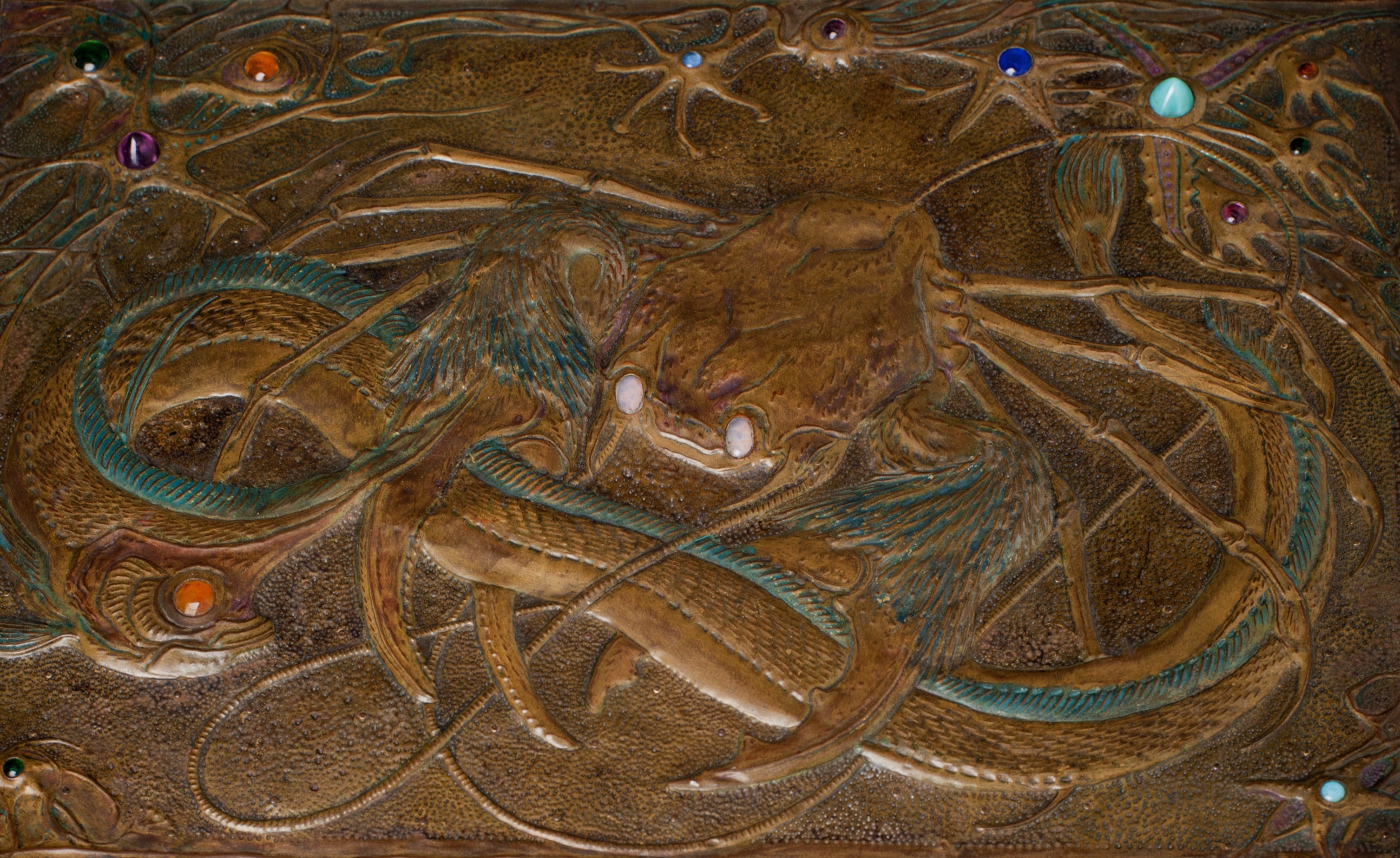
About the Seller
5.0
Gold Seller
Premium sellers maintaining a 4.3+ rating and 24-hour response times
Established in 2013
1stDibs seller since 2016
99 sales on 1stDibs
Typical response time: 6 hours
- ShippingRetrieving quote...Shipping from: Chicago, IL
- Return Policy
Authenticity Guarantee
In the unlikely event there’s an issue with an item’s authenticity, contact us within 1 year for a full refund. DetailsMoney-Back Guarantee
If your item is not as described, is damaged in transit, or does not arrive, contact us within 7 days for a full refund. Details24-Hour Cancellation
You have a 24-hour grace period in which to reconsider your purchase, with no questions asked.Vetted Professional Sellers
Our world-class sellers must adhere to strict standards for service and quality, maintaining the integrity of our listings.Price-Match Guarantee
If you find that a seller listed the same item for a lower price elsewhere, we’ll match it.Trusted Global Delivery
Our best-in-class carrier network provides specialized shipping options worldwide, including custom delivery.More From This Seller
View AllGerlach's Allegorien Folio, plate #58: "Sculpture" Lithograph, Gustav Klimt.
By Gustav Klimt
Located in Chicago, IL
As an artist trained in the applied arts, Gustav Klimt valued all forms of art, including the graphic arts. This final design from 1896 for inclusion in Allegorien published by Gerlach & Schenk demonstrates respect for artistic precedent and for a wide range of media and technique. The publication was printed in an unknown number of copies. Klimt’s rendering in latin of the title, “SCVLPTVR.,” with three-dimensional effect on the wall, is a figurative allusion to this medium as well as a literal reference to Ancient Rome. By doing the same with his signature and date in roman numerals on the right hand side of the image, Klimt places himself, The Artist, firmly in this linear and legitimizing context of art history and as its modern standard-bearer. Playing on Classical mythology and the story of Pygmalion, in which a statue comes to life, Klimt presents his modern Venus holding an apple. Klimt’s Venus exhibits a curvilinear softness; there are no angles. Klimt deftly shows the possibilities in a graphic image to give life to dark, wavy hair and tenderness to swelling breasts and belly. To further emphasize the allegory of thriving modern art, he contrasts his Venus with the cold, hard ancient classical head whose eyes are vacuous and whose hair is but a stylized mass of curls. Klimt’s living Venus stands in front of the large bust and large classical pillar upon which is a sculpture of a Sphinx and a Greek Attic bust. As if a gallery to represent sculpture’s “best of” through the ages, the upper horizontal panel includes bust depictions in marble, cast metal and wood...
Category
1890s Vienna Secession Figurative Prints
Materials
Lithograph
Gerlach's Allegorien Folio, plate #53: "Junius" Lithograph, Gustav Klimt.
By Gustav Klimt
Located in Chicago, IL
Contributors to Gerlach & Schenk’s publications valued design and innovation in the graphic arts just as much as they examined allegories as subject matter for exploration. Here, Gus...
Category
1890s Vienna Secession Figurative Prints
Materials
Lithograph
H.O. Miethke Das Werk folio "The Hope II" collotype print
By Gustav Klimt & K.K. Hof-und Staatsdruckerei
Located in Chicago, IL
DAS WERK GUSTAV KLIMTS, a portfolio of 50 prints, ten of which are multicolor collotypes on chine colle paper laid down on hand-made heavy cream wove paper with deckled edges; under ...
Category
Early 1900s Vienna Secession Figurative Prints
Materials
Paper
H.O. Miethke Das Werk folio "Death and Life" collotype print
By Gustav Klimt & K.K. Hof-und Staatsdruckerei
Located in Chicago, IL
DAS WERK GUSTAV KLIMTS, a portfolio of 50 prints, ten of which are multicolor collotypes on chine colle paper laid down on hand-made heavy cream wove paper with deckled edges; under ...
Category
Early 1900s Vienna Secession Figurative Prints
Materials
Paper
H.O. Miethke Das Werk folio "The Virgins" collotype print
By Gustav Klimt & K.K. Hof-und Staatsdruckerei
Located in Chicago, IL
The Virgins, no. 2 from the fifth installment of Das Werk Gustav Klimts
The Virgins speaks to a new chapter of Klimt’s artistic development. That it was sel...
Category
Early 1900s Vienna Secession Figurative Prints
Materials
Paper
Gerlach's Allegorien, plate #66: "Tragedy" Lithograph, Gustav Klimt.
By Gustav Klimt
Located in Chicago, IL
Gustav Klimt created this image for inclusion in Gerlach & Schenk’s Allegorien the year before he formed the Vienna Secession. While this design is similar to his other inclusions, L...
Category
1890s Vienna Secession Figurative Prints
Materials
Lithograph
You May Also Like
Death and Life by Gustav Klimt, Das Werk lifetime collotype, 1908-1912
By Gustav Klimt
Located in Chicago, IL
Original collotype created from Gustav Klimt’s Death and Life, painted in 1908. Published and edited by Verlag H.O. Miethke and printed by k.k. Hof- und St...
Category
Early 1900s Vienna Secession Prints and Multiples
Materials
Paper
Expectation-Metallic Poster. Printed in Austria
By Gustav Klimt
Located in Chesterfield, MI
Poster. Measures 16 x 11 inches and is Unframed. Good/Fair Condition-signs of wear consistent with age and handling.
Category
Late 20th Century Portrait Prints
Materials
Lithograph
$140 Sale Price
20% Off
Beethoven Frieze (detail) by Gustav Klimt, Das Werk collotype, 1908-1912
By Gustav Klimt
Located in Chicago, IL
Original collotype created from a detail of Gustav Klimt’s Beethoven Frieze. Published and edited by Verlag H.O. Miethke and printed by k.k. Hof- und Staatsdruckerei, Vienna, in an e...
Category
Early 1900s Vienna Secession Prints and Multiples
Materials
Paper
Fulfilment-Metallic Poster. Printed in Austria
By Gustav Klimt
Located in Chesterfield, MI
Poster. Measures 16 x 11 inches and is Unframed. Good/Fair Condition-signs of wear consistent with age and handling (please see secondary images for details).
Category
Late 20th Century Portrait Prints
Materials
Lithograph
$140 Sale Price
20% Off
Schloss Kammer Lake Attersee II by Gustav Klimt, Das Werk collotype, 1908-1912
By Gustav Klimt
Located in Chicago, IL
Original collotype created from Gustav Klimt’s Schloss Kammer on Lake Attersee II (Das Werk Gustav Klimts), originally painted in 1909. Publishe...
Category
Early 1900s Vienna Secession Prints and Multiples
Materials
Paper
Sketched Portrait - 1910s - Original Collotype Print by Gustav Klimt
By (after) Gustav Klimt
Located in Roma, IT
Sketched Portrait is a vintage, beautiful, and rare collotype from “Gustav Klimt: Fünfundzwanzig Handzeichnungen”, a limited-edition collection of 25 monochrome and two-color collotypes after drawings by Gustav Klimt.
Published by Gilhofer and Ranschburg, Vienna, July 1919, just one year after Klimt...
Category
1910s Modern Portrait Prints
Materials
Black and White
$2,721 Sale Price
35% Off
